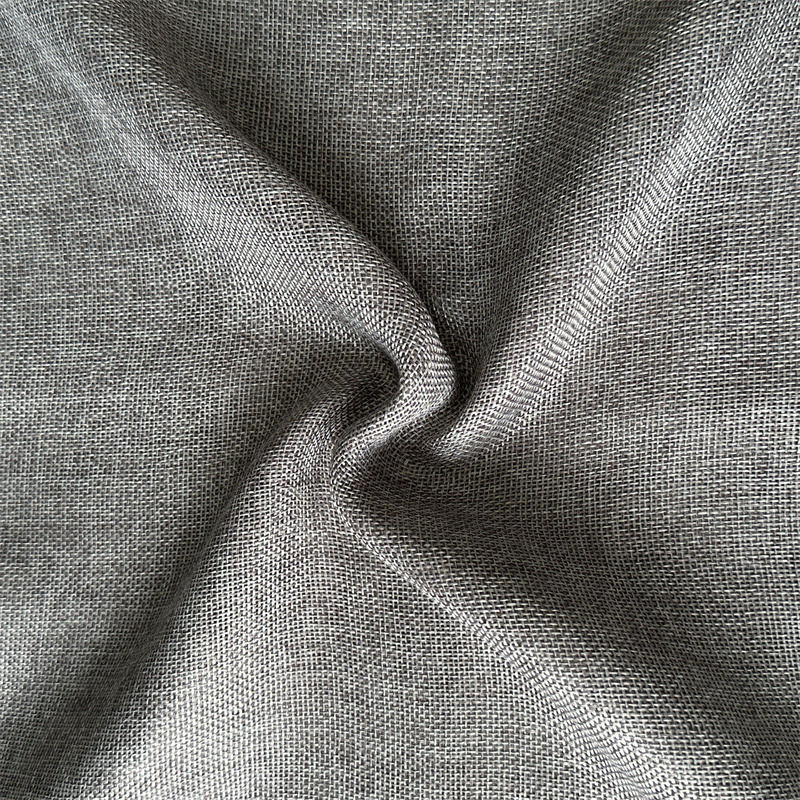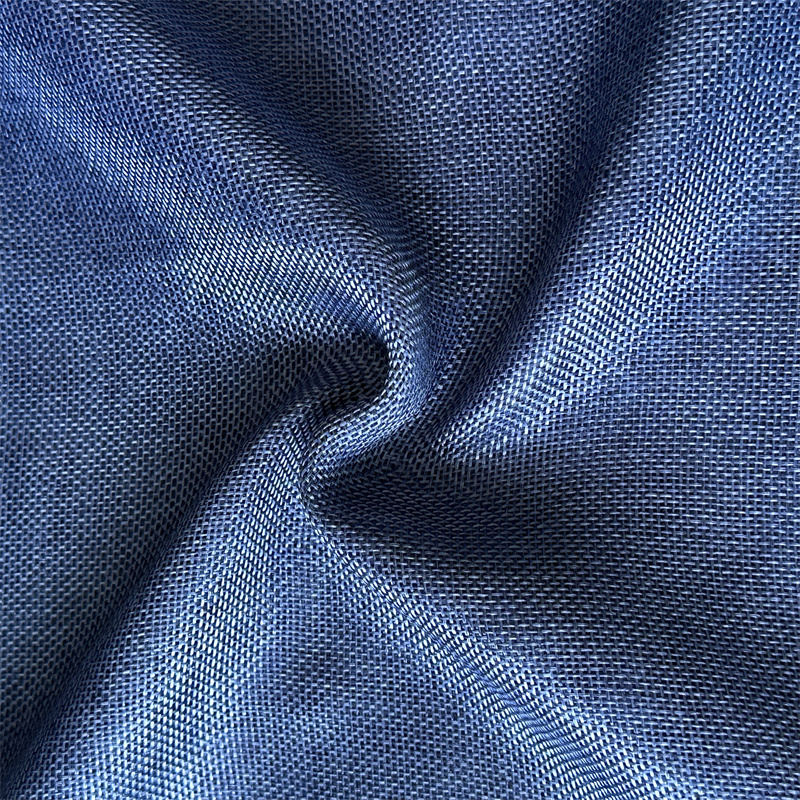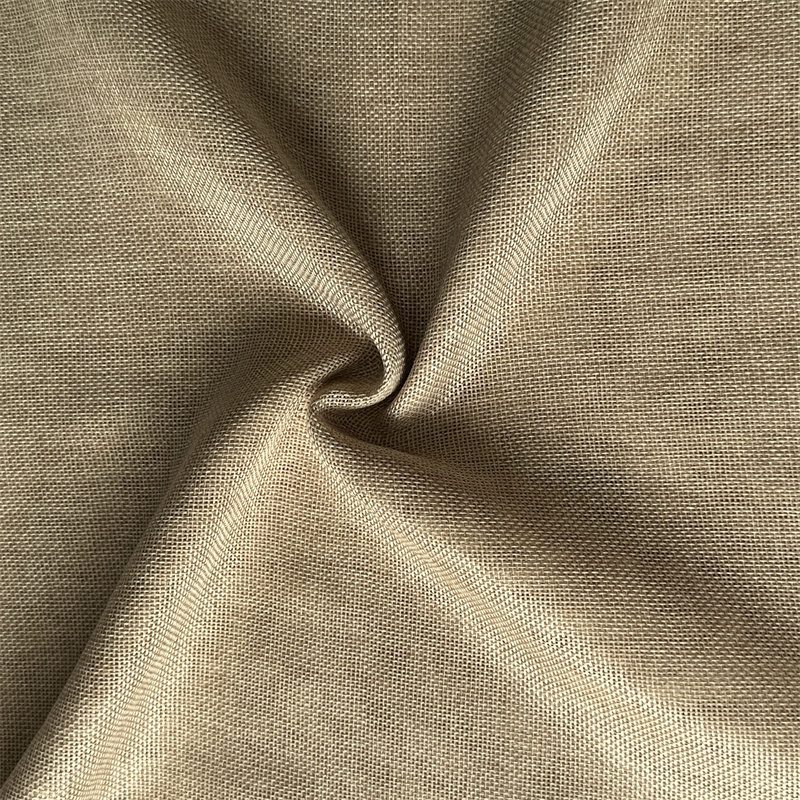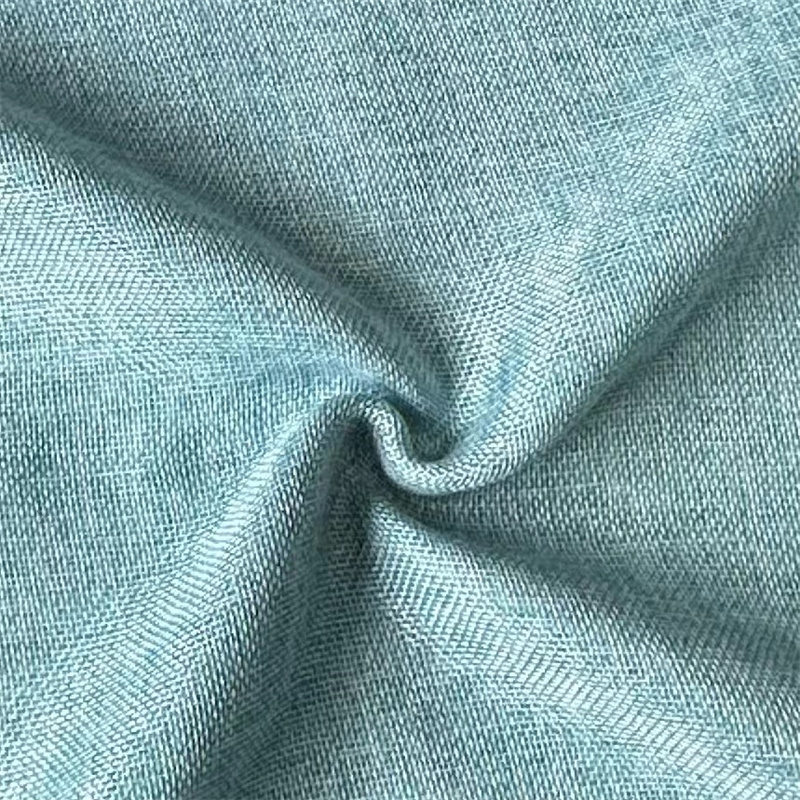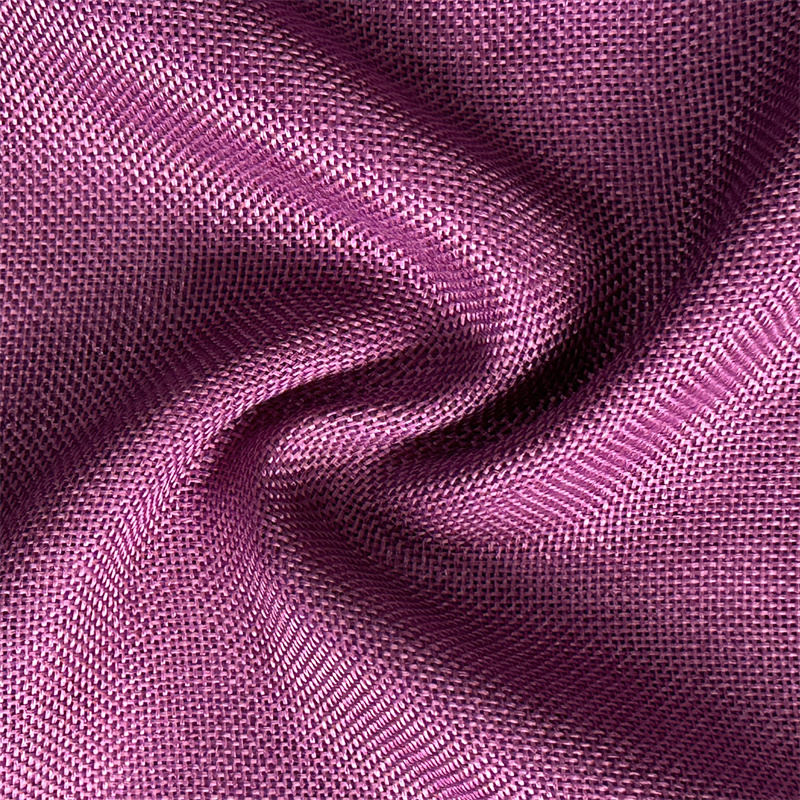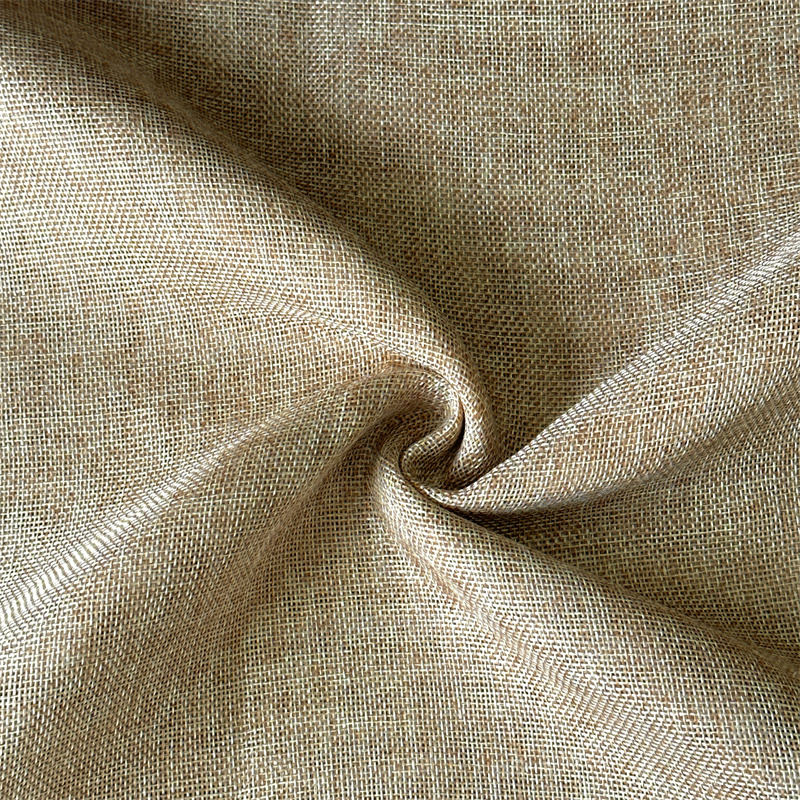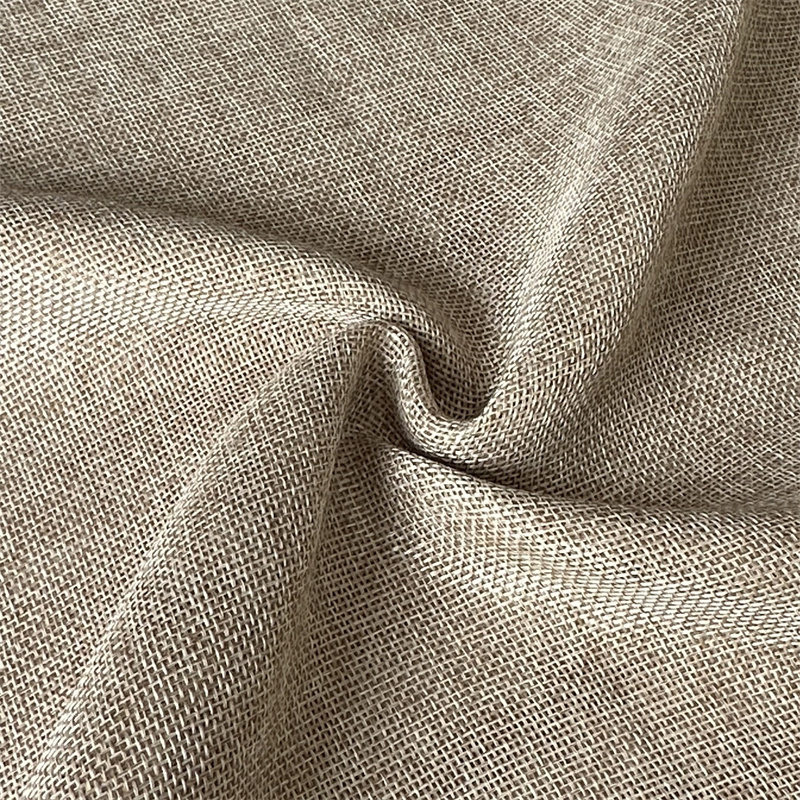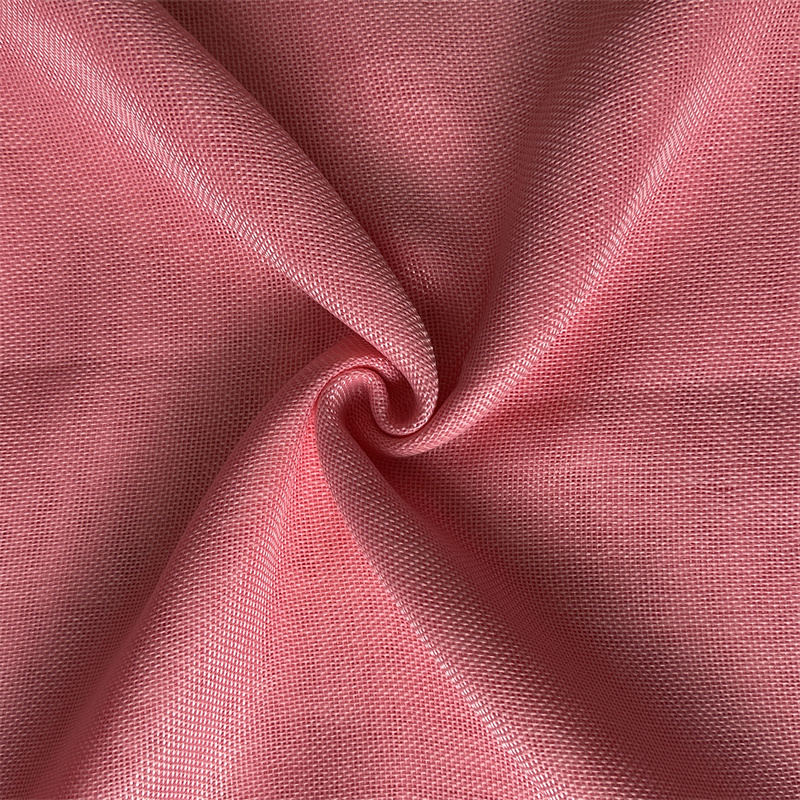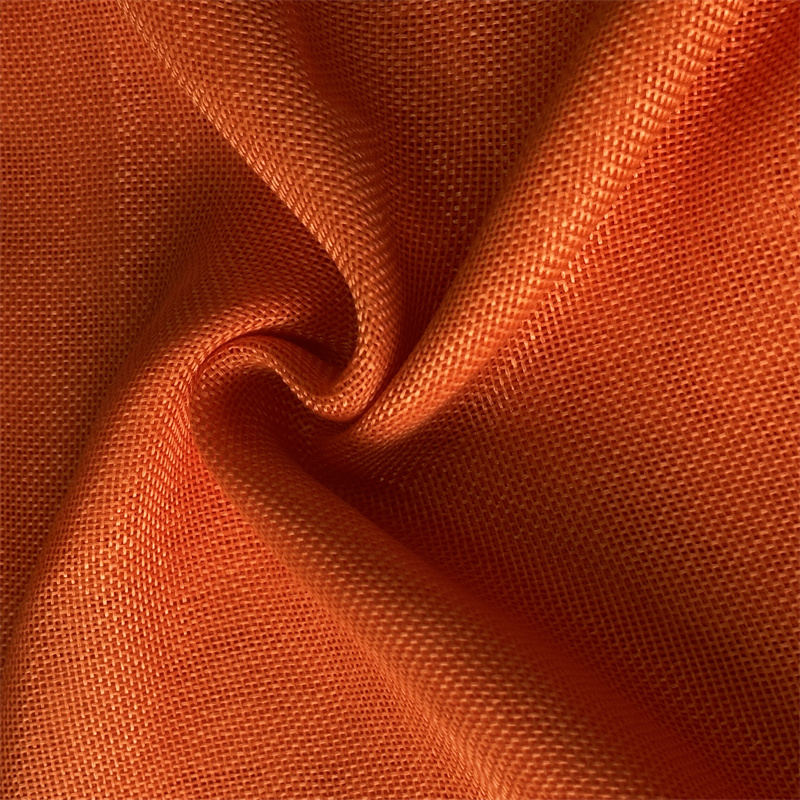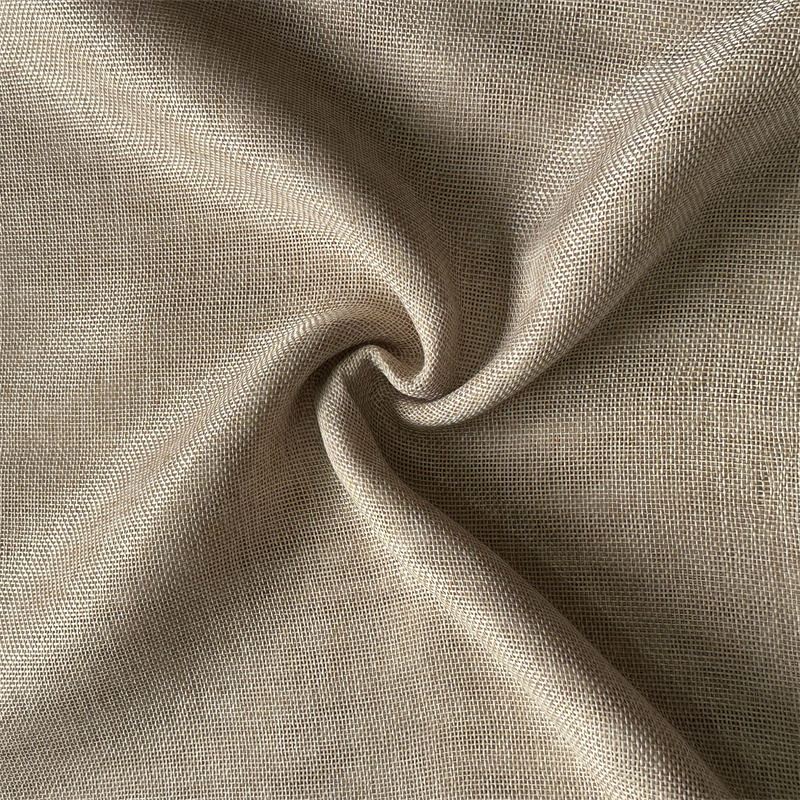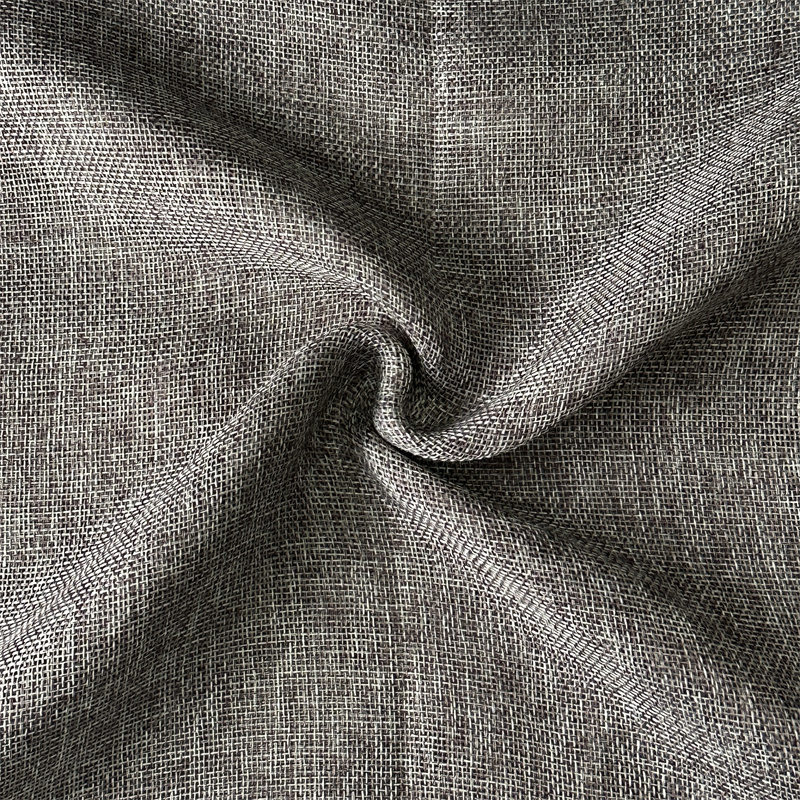Solid color polyester linen fabric has become one of the most popular choices in home décor due to its elegant texture, versatile appearance, and practical properties. Whether you are designing flowing curtains for a living room or creating stylish tablecloths for everyday dining, this fabric offers an excellent balance between performance and aesthetics. This article explores in depth why solid color polyester linen fabric is suitable for curtains and tablecloths, analyzing its durability, texture, color retention, maintenance, and design flexibility.
Understanding Solid Color Polyester Linen Fabric
Polyester linen fabric is a blend that combines the natural look and tactile quality of linen with the strength and wrinkle resistance of polyester. The “solid color” version is dyed uniformly, providing a clean, consistent tone that fits a wide range of interior styles. Unlike pure linen, which wrinkles easily and may shrink after washing, polyester linen maintains shape, texture, and vibrancy over time.
Composition and Texture
Typically, the blend ratio ranges between 70% polyester and 30% linen, though variations exist. The polyester fibers provide structure and durability, while linen fibers contribute a slightly coarse, natural texture. The result is a fabric that feels organic yet is more resilient to environmental changes.
Solid Color Finishing
Solid color dyeing ensures color uniformity across the entire fabric roll. The polyester component allows dye to bond deeply, ensuring fade resistance even after repeated washing or exposure to sunlight — a key factor for curtains and table linens that receive regular light and use.
Advantages for Curtain Applications
Curtains demand a balance between beauty and functionality. Solid color polyester linen fabric meets both needs with its elegant drape, strength, and easy maintenance. Let’s explore its performance in curtain design.
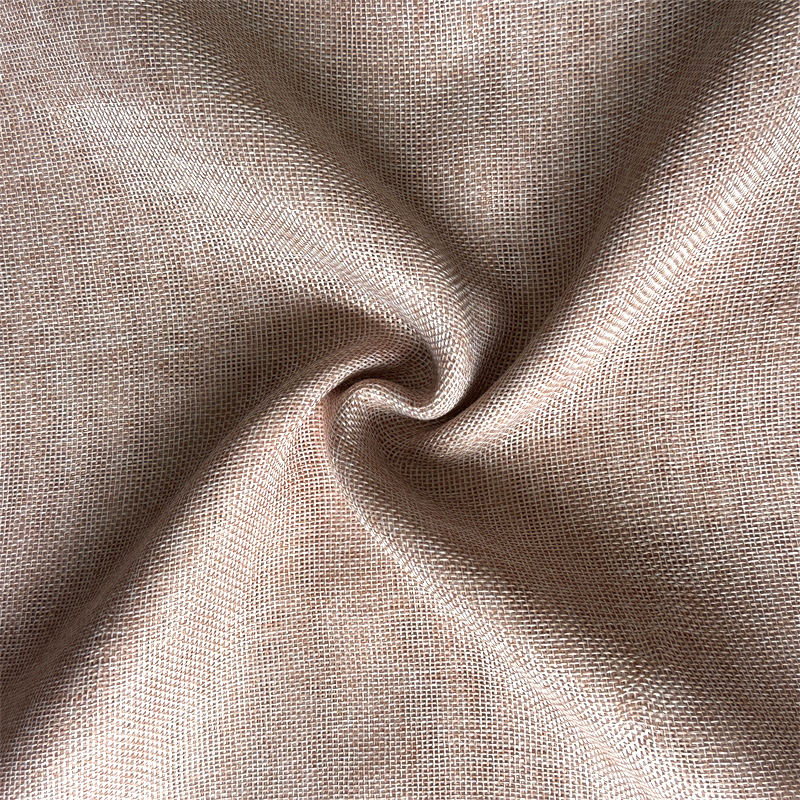
Durability and Shape Retention
Pure linen curtains tend to lose shape after multiple washes or under high humidity. In contrast, polyester linen resists deformation, keeping curtains crisp and structured. This makes them suitable for both pleated and free-flowing styles without constant ironing or re-hemming.
Light Control and Opacity
The fabric’s medium weight provides balanced opacity — allowing soft filtered light to pass while maintaining privacy. For living rooms and bedrooms, it can be used alone or layered with sheer fabric to achieve a desired light effect.
Color and Texture Variety
Solid color polyester linen fabric is available in a wide palette: warm neutrals for minimalism, vibrant hues for accent windows, and cool tones for calm environments. Its slightly textured weave reflects light softly, adding depth to flat wall spaces without overpowering the décor.
Ease of Care
Curtains accumulate dust and sunlight exposure daily. Polyester linen’s easy-clean nature allows for machine washing or light dry-cleaning, and it dries quickly without shrinking. Its wrinkle resistance reduces the need for steaming, a clear advantage for large curtain panels.
Advantages for Tablecloth Applications
Tablecloths require materials that can withstand frequent washing, food spills, and friction while maintaining color and form. Solid color polyester linen excels in these areas, making it a top choice for both home dining and hospitality environments.
Stain Resistance and Easy Cleaning
Thanks to polyester’s non-absorbent nature, spills and food stains are less likely to penetrate deeply. Most stains can be wiped clean or washed out easily with mild detergent. This property reduces the risk of permanent discoloration, extending the tablecloth’s life.
Wrinkle and Shrink Resistance
Linen’s natural beauty comes with the drawback of creasing easily. By blending it with polyester, manufacturers achieve the same organic texture without excessive wrinkles. The result is a tablecloth that looks freshly pressed after every wash, saving time and effort.
Colorfastness and Aesthetic Appeal
Dining areas benefit from solid, elegant colors that coordinate with dishware and interiors. The fabric’s strong dye bonding keeps hues bright even after repeated washing cycles or exposure to cleaning agents. It remains visually appealing through everyday use and special events alike.
Comparing Polyester Linen with Other Fabrics
Before choosing any material, it’s useful to compare solid color polyester linen fabric with other popular options like cotton, pure linen, or polyester microfiber.
| Fabric Type | Durability | Wrinkle Resistance | Maintenance | Best Use |
| Pure Linen | Moderate | Low | Hand wash / Iron | Luxury decor |
| Polyester Microfiber | High | High | Machine washable | Casual use |
| Cotton Blend | Good | Moderate | Machine washable | Everyday use |
| Polyester Linen Blend | High | High | Low maintenance | Curtains, tablecloths |
Design Flexibility and Aesthetic Options
Because of its even surface and strong structure, solid color polyester linen fabric works well with different interior styles — from rustic farmhouse to modern minimalist. It’s also compatible with embellishments such as embroidery, digital printing, or hemstitch borders. Designers often favor it for hospitality venues that require visual unity, durability, and ease of replacement.
Color Coordination
Solid colors allow easy coordination with patterned furniture or wall décor. Neutral tones like beige, ivory, or gray create calm spaces, while bold colors such as navy, mustard, or emerald add focal interest. The polyester component ensures colors remain consistent between fabric batches, which is critical for large-scale interior projects.
Texture and Drapability
The fabric drapes smoothly yet retains subtle linen texture, offering a natural feel with polished finish. For tablecloths, this balance means the fabric falls evenly over table edges without appearing stiff or too limp. For curtains, the same property delivers graceful folds and flow.
Practical Maintenance Tips
Proper care ensures the longevity and fresh appearance of your polyester linen curtains and tablecloths.
- Machine wash on a gentle cycle with mild detergent to preserve color and fiber integrity.
- Avoid bleach, which may weaken linen fibers and dull the color.
- Dry naturally or on low heat to prevent shrinkage; remove promptly to minimize wrinkles.
- Iron on low heat if necessary, preferably while slightly damp.
Sustainability Considerations
While polyester is a synthetic fiber, many manufacturers now use recycled polyester made from post-consumer plastics. Combining it with natural linen reduces full synthetic content and energy consumption. Choosing fabrics with OEKO-TEX® or GRS certification ensures that dyes and finishing processes meet safety and environmental standards.
Conclusion: The Ideal Balance of Style and Function
Solid color polyester linen fabric successfully bridges the gap between luxury and practicality. For curtains, it offers elegant drape, light control, and easy care; for tablecloths, it delivers strength, stain resistance, and colorfast beauty. Its versatility, affordability, and modern sustainability make it one of the best options for both residential and commercial spaces seeking timeless design with everyday functionality.


 中文简体
中文简体 Español
Español